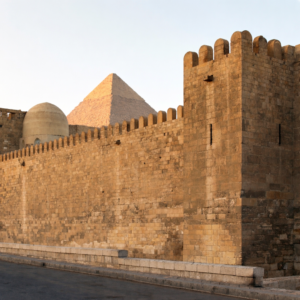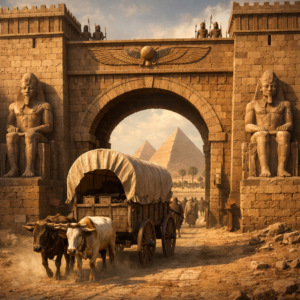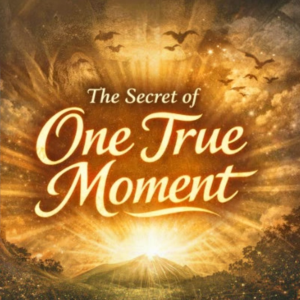All In Good Time
If I were to ask, “What is the secret cause of evil and sin?” what would you answer? Perhaps you would suggest lust, greed, or one of our many other base temptations. However, Reb Noson offers one basic catalyst: Time.
Our Rabbis teach that the evil inclination is only influential “in its time” (Yerushalmi, Sotah 3.) Beginning with the first sin – the eating of the forbidden fruit – the great Tzaddikim erred only because they acted based on a miscalculation of time. For example, had Adam waited until Shabbat, the forbidden fruit would have become permissible to him. It wasn’t that he was wrong about the great potential spiritual rectification brought about by eating it, but rather that the time was not yet ripe for his actions. And, as we know, his partaking of the fruit had disastrous ramifications.
Similarly, after twice being promised the land, Abraham asks God, “How will I know that I will inherit [the land]?”(Genesis 15:8). The Talmud (Nedarim 32a) identifies this specific query as being the root cause of the Egyptian exile. Now, Abraham was an awesome Tzaddik who introduced monotheism to the world. In fact, one needs to go back only two verses to see God complimenting Abraham for his tremendous level of belief. So how could Abraham have had such a quick reversal of faith?
Abraham foresaw that although his descendants would eventually conquer the Holy Land, they would be exiled from there. He perceived that for over two thousand years they would be persecuted, tortured and murdered while living in foreign lands. Therefore he “pushed” God to calculate and lay out at that very moment the exact plan for his descendants inheriting the land forever. Yet the time for revealing the final redemption had not yet come. The wondrous “grand finale” could not yet be revealed.
Though these episodes involved great Tzaddikim, the challenge of time affects us the same. Life is very precious. Every moment affords us the opportunity to connect with God. We were not put here simply to do and not to do. God breathed a neshamah (soul) into our bodies so we could experience Him even in the mundanity of the world. What stops us? Who wouldn’t take advantage of fostering a private relationship with the Master of the universe?
More than anything else, time stops us. God promised Abraham that he would inherit the land and that the redemption would eventually come. Similarly, we know that in the end, every Jew will receive his or her personal rectification. Each of us will merit eternal spiritual bliss. But when and exactly how this will happen is known only to God. We simply don’t know.
We do know that we can grow and experience a spiritual life by living in the present. By avoiding the pressure of constantly looking back at our failures, and the anxiety of trying to figure out how things will correct themselves in the future, we can live in the moment. We are free to connect to all of the goodness that is being offered to us right now. Doing so allows us to move forward and expedite the process that, yes, God will somehow finish. But first we must let go and establish true trust in Him; only then are we at liberty to discover our true, Godly essence.
Perhaps the only way this lesson could have been learned was by us being exiled in Egypt. Even though we were enslaved and completely subservient to the Egyptians, God demonstrated to us, before the entire world, that in the end He will take us out. Amen!
Based on Likutey Halakhot, Hilkhot Gezeilah 5
- 2 comments























2 Responses
LOVED THE ARTICLE
SHABBAT SHALOM DID YOU BY CHANCE RECEIVE MY CHECK FOR $ 65.00 AND MAIL IT BACK YET, PLEASE LET ME KNOW @ YOUR EARLIEST CONVENIENCE!
GOOD SHABBAS
JOSEPHINE S VALLONE